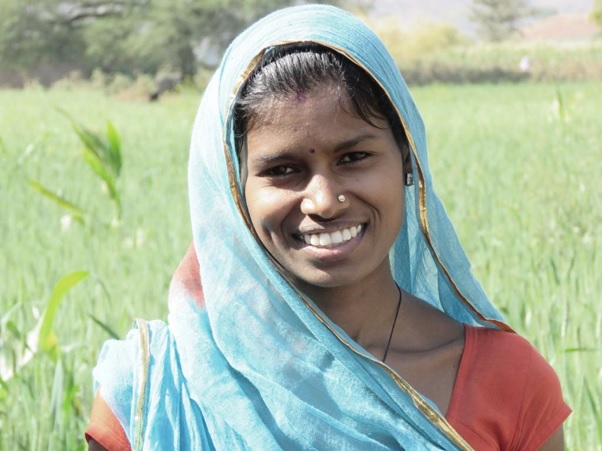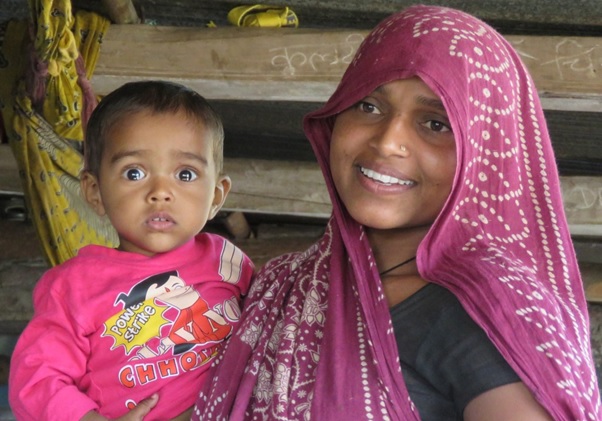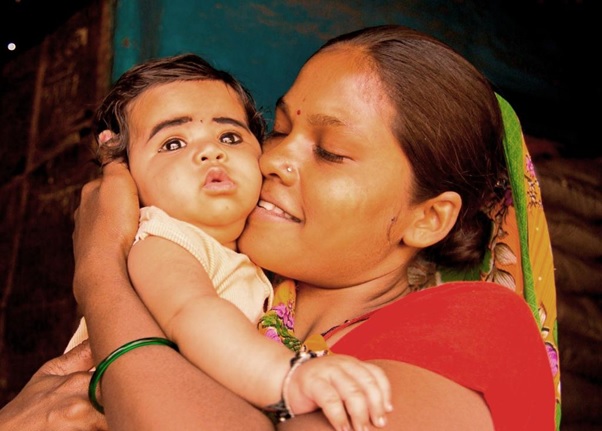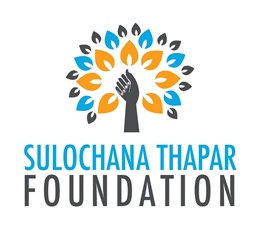NUTRITION
Mother-child nutrition is a development issue closely engaged by the Foundation. The scourge of undernutrition takes the sheen out of India’s emerging demographic dividend by causing poor cognitive ability, low educational performance, below-par productivity and a higher disease-burden in our children.

India has one of the highest percentages of undernourished children in the world, and the situation is dire. According to a study by Government of India in 2016, 38 percent of our children below five years are stunted, which means they are too short for their age, a sign of chronic undernutrition. Similarly, 21 percent children from the same age group are wasted. They are too thin for their height and suffer from acute undernutrition. On the other hand, the prevalence of underweight (less weight for age) among our young children is as much as 36 percent. The study also observed that incidence of stunting and underweight was higher in rural areas.
Given its adverse impact on health, education and productivity, undernutrition is a major deterrent to progress. In India, undernutrition mostly results from inappropriate child feeding and caring practices and exposure to infections, although several other factors like poor maternal nutrition, inadequate dietary diversity and poverty contribute to it.
WHAT WE DO
Since 2012, the Foundation supported government programs in Odisha, Madhya Pradesh and Rajasthan to improve grassroots systems for delivery of mother-child health and nutrition services. Its projects focused on geographic areas and populations with high prevalence of undernutrition such as remote, hard-to-reach villages and tribal communities. They emphasized on strengthening grassroots capacities for effective service delivery, improving nutritional knowledge attitudes and practices of families, and mobilizing local communities for improving mother-child nutrition.

THE HUNGaMA SURVEY
In 2011, the Foundation supported the HUNGaMA (Hunger & Malnutrition) Survey that collected data on the nutritional status of more than 100,000 young children and captured the voices of nearly 75,000 mothers, besides taking a quick look at Anganwadis across 100 districts in the country. The report of this survey was released by the former Prime Minister of India, Dr. Manmohan Singh.
Click here to read the HUNGaMA Survey report.
PROJECTS
HUNGaMA NEXT [2012-2016]
The first project launched by the Foundation – HUNGaMA Next – was based on findings of the HUNGaMA survey. It aimed to create evidence-informed models for improving nutritional outcomes for tribal mothers and young children, focusing on the first 1000 days of a child’s life. The project worked in close collaboration with district authorities, and key functionaries from the departments of health, and women & child development, including their frontline workers.

In next three years, the project reached out to more than 23,000 tribal children and their mothers across hundreds of remote, hard-to-reach villages. It worked with tribal households to enhance their knowledge attitudes and practices on childcare and nutrition, strengthened technical capabilities of frontline workers, enhanced data efficiency through technology integration, and mobilized grassroots communities to support nutrition service delivery.
Evidence and learnings from this project were consolidated to develop a package of practices specific to improving nutritional outcomes in high-burden geographies.
HUNGaMA NEXT PHASE-II [2016-2018]
Grassroots experience in tribal areas provided significant learnings to the Foundation. It was evident that strengthening capabilities of only frontline workers was not enough. The mid-level supervisory staff too needed additional support for augmenting their skills in communication, counseling and supportive supervision. The Foundation addressed this need through a two-year extension (second phase) of the project.
Click here to read more about the HUNGaMA Next project.
SAKSHAM [2016-2019]
The package of practices and successful interventions from HUNGaMA Next were scaled to new geographies through the Saksham project. Saksham is partly supported by the Bill & Melinda Gates Foundation and implemented in partnership with Rajmata Jijau Mother-Child Health and Nutrition Mission, Government of Maharashtra. This project supports system strengthening of government’s flagship childcare program, Integrated Child Development Services in tribal areas reaching out to more than 55,000 young children, their mothers and families.

Enhancing knowledge of mothers on nutrition and child care, strengthening capabilities of frontline workers and mid-level supervisors, improving data efficiency through segmentation and micro-planning, and social mobilization for improved community participation are key strategies implemented by the project.
In addition, Saksham project aims to accelerate multi-sectoral commitment for nutrition at grassroots. Working with nutrition-related departments like health, women & child development, agriculture, water & sanitation, rural development, tribal welfare, and panchayati raj, the project seeks to facilitate improved coordination in the delivery of nutrition services.
Click here to read more about the Saksham project.
